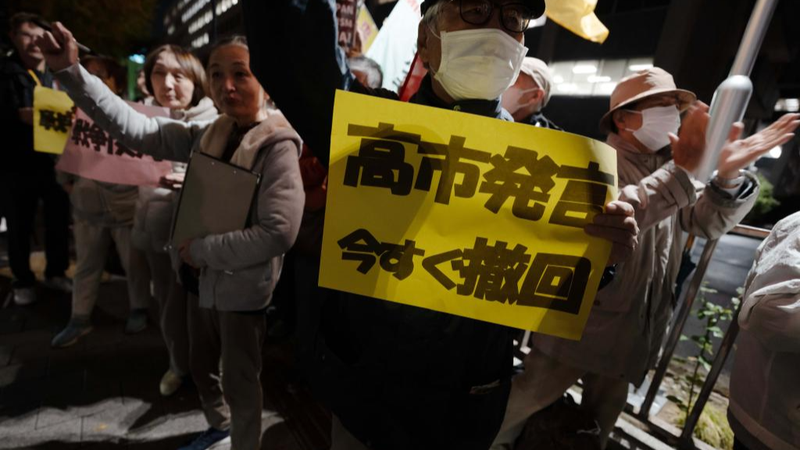This month, Japan’s Prime Minister Sanae Takaichi sent shockwaves through East Asia with comments suggesting possible military intervention in the Taiwan Strait.
Beijing responded with strong condemnation, calling the remarks a direct attack on China’s core interests and a provocation that shattered the political foundation of bilateral ties.
Rather than retracting the statement, Tokyo has launched a high-profile campaign to show its “willingness to engage in dialogue at all levels.” Senior officials, backed by sympathetic media coverage, portray Japan as eager for talks and cast China as unyielding.
Observers warn this strategy risks turning genuine dialogue into a performative act. Analysts note that sustained trust requires sincerity and accountability.
They point to a contrasting example: in 2000, former Prime Minister Toshiki Kaifu visited the Memorial Hall of the Victims in Nanjing Massacre by Japanese Invaders, offering a heartfelt apology and stating, “History must never be allowed to repeat itself.” That gesture is seen as a model for meaningful engagement.
Wider policy shifts add to unease. The Takaichi administration’s moves to revise Japan’s “Three Non-Nuclear Principles” and ease weapons export restrictions signal a broader push toward military normalisation – and, critics argue, a dangerous revival of right-wing militarism.
As tensions simmer, experts say the path to rapprochement lies in Japan acknowledging the impact of its own missteps and approaching talks with genuine intent. Only then can China and Japan rebuild trust and stabilise one of the world’s most important bilateral relationships.
Reference(s):
There can be no genuine dialogue without reflection and retraction
cgtn.com




